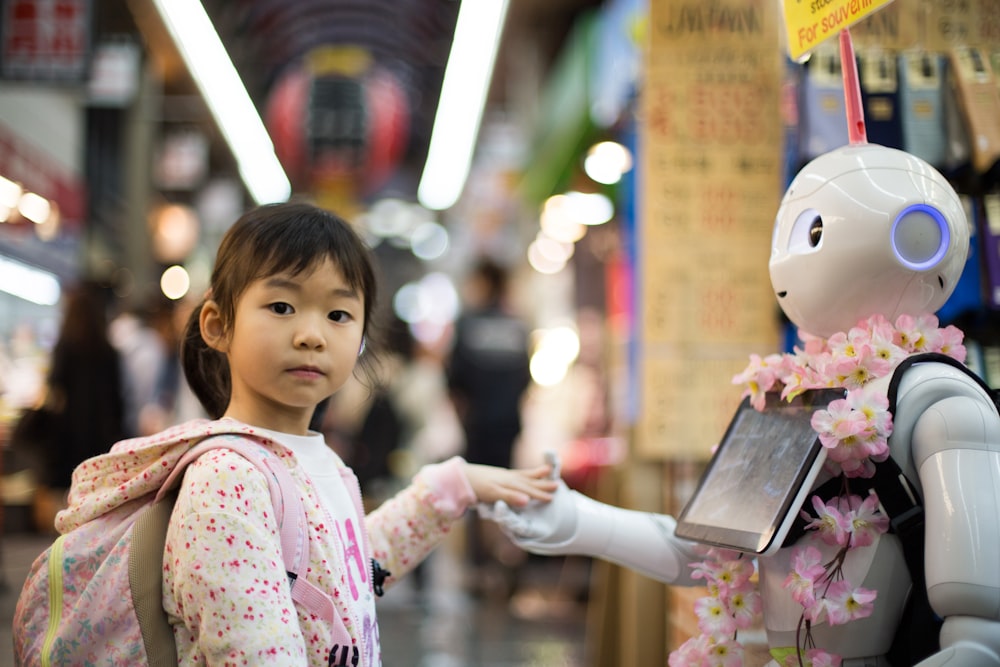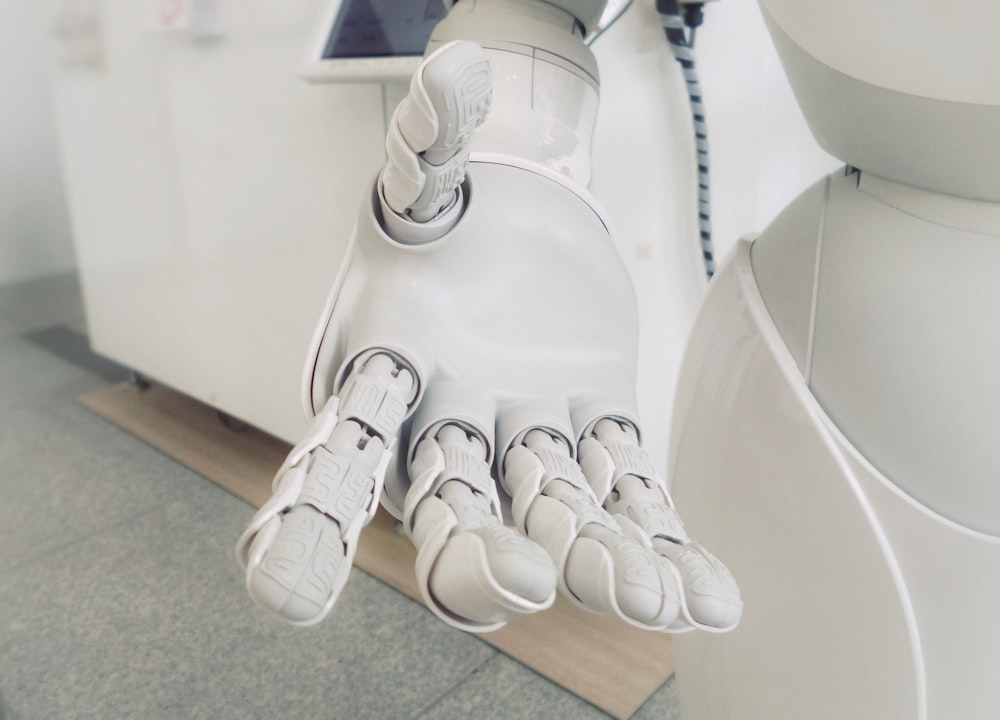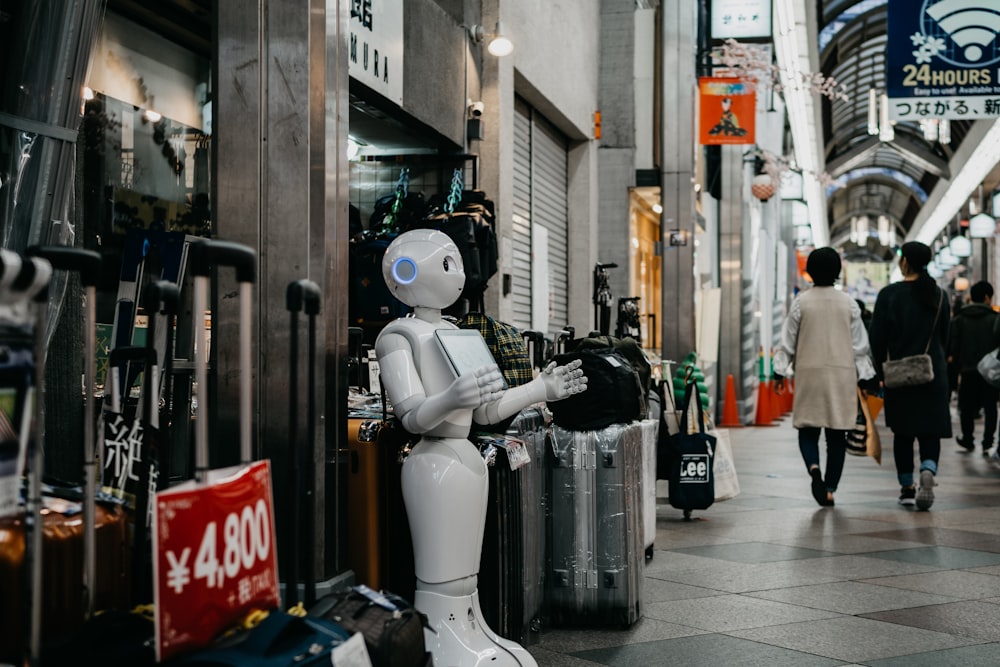Page Contents
Ned Ludd’s body was filled with anger.
All he was able to think about was the ‘devilish machine’. ‘I won’t let them take my job away from me’, a thought ran through young weaver’s mind. Trembling with rage, his fingers grasped a giant hammer, he swung and the stocking frame standing in front of him ended up smashed into little pieces…
Or at least a popular urban tale tells so. The alleged incident is associated with the roots of the Luddite movement of the early 19th century which alongside a bloom of mechanized manufacturing stirred up fears of unemployment and other socially disruptive effects of the Industrial revolution.
Even though industrialization was unstoppable and took over the world, the sentiment of worrying about peoples’ jobs in the face of technological progress shows up even today, two centuries later. Only this time, the equivalent of coal and steam engines within Industry 4.0 turns out to be artificial intelligence and machine learning. As more organizations adopt AI-augmented solutions, the boost of smart automatization puts a query: Do AI robots displace the need for human intelligence? At Born Digital, we don’t think so. And here are 5 reasons why:
Reason #1: Human advantage is creativity

Even though AI innovations usher new and new human-like solutions, such as fluently speaking voicebots, at its core AI keep being nothing more than an algorithm that can only do what it’s programmed to do. The creative spark and ability to get out of the rut and improvise remain profoundly human and even the most effective applications of AI will still require a human touch.
Reason #2: AI takes over tasks that humans can’t do anyway
Imagine yourself standing in front of an ATM, biting your nails desperately to remember the PIN code to your payment card. If you reach out to the bank’s contact center for help, the operator will not be allowed to look up and give you your password for security reasons, even though it is stored in the bank’s database. In this particular case, the only obstacle to resolve your problem is the fact that there’s a human being on the other end of the line. Cross out the human from the equation and assign the task to AI-driven voicebot and, voilà, a service that has not yet been possible to provide suddenly becomes standard without a human being displaced because he or she couldn’t provide the service before anyway.
Reason #3: AI creates more jobs than it destroys

Still worrying about the future of the human job market? Let the numbers speak for themselves. World Economic Forum report from 2020 estimates that, by 2025, the increase of AI automatization will lead to instigating 97 million new jobs while automating 87 million jobs. That being said, AI technologies create more job opportunities than it displaces.
Reason #4: Companies adopting AI don’t ditch their employees, they upskill them
Human – AI collaboration is the key. As it turns out, 50 percent of organizations adopting AI automation technologies also reskill and upskill their employees so they can include newly acquired skills in their work routines. Besides, 48 percent of companies take into consideration identifying new roles and skills for their employees to adopt and 46 percent of organizations state that they will embark on continuous upskilling programs for their workers.
Reason #5: Most jobs people used to do don’t exist anymore and we’re still rollin’

Not convinced yet? Allow me one last try. Taking a trip against the flow of time, one hundred years ago, we meet switchboard operators connecting callers; town criers announcing the news to crowds; lamplighters manually turning on and off gas street lights; knock-uppers knocking on peoples’ doors and windows to wake them up for work; pinsetters working at bowling alleys – none of these, and overall up to 90 percent jobs people used to do in history don’t exist anymore. Now, let’s take it the other way round: 20 years ago, who would think that one can boost a career by posting pictures on Instagram, make a living with video games live-streaming or earn extra money by driving a shared vehicle? To name a few more: social media manager, self-driving car mechanics, NLP linguist, UX designer, mobile apps developer.
The weakness of arguments for robot domination in the workforce lies in the unspoken assumption that there is a constant number of possible jobs. Yet, tech development produces new never-seen-before job opportunities every day. And it is unlikely that if neither the steam engine nor the Internet have managed to deprive humanity of their jobs, artificial intelligence should do differently.















